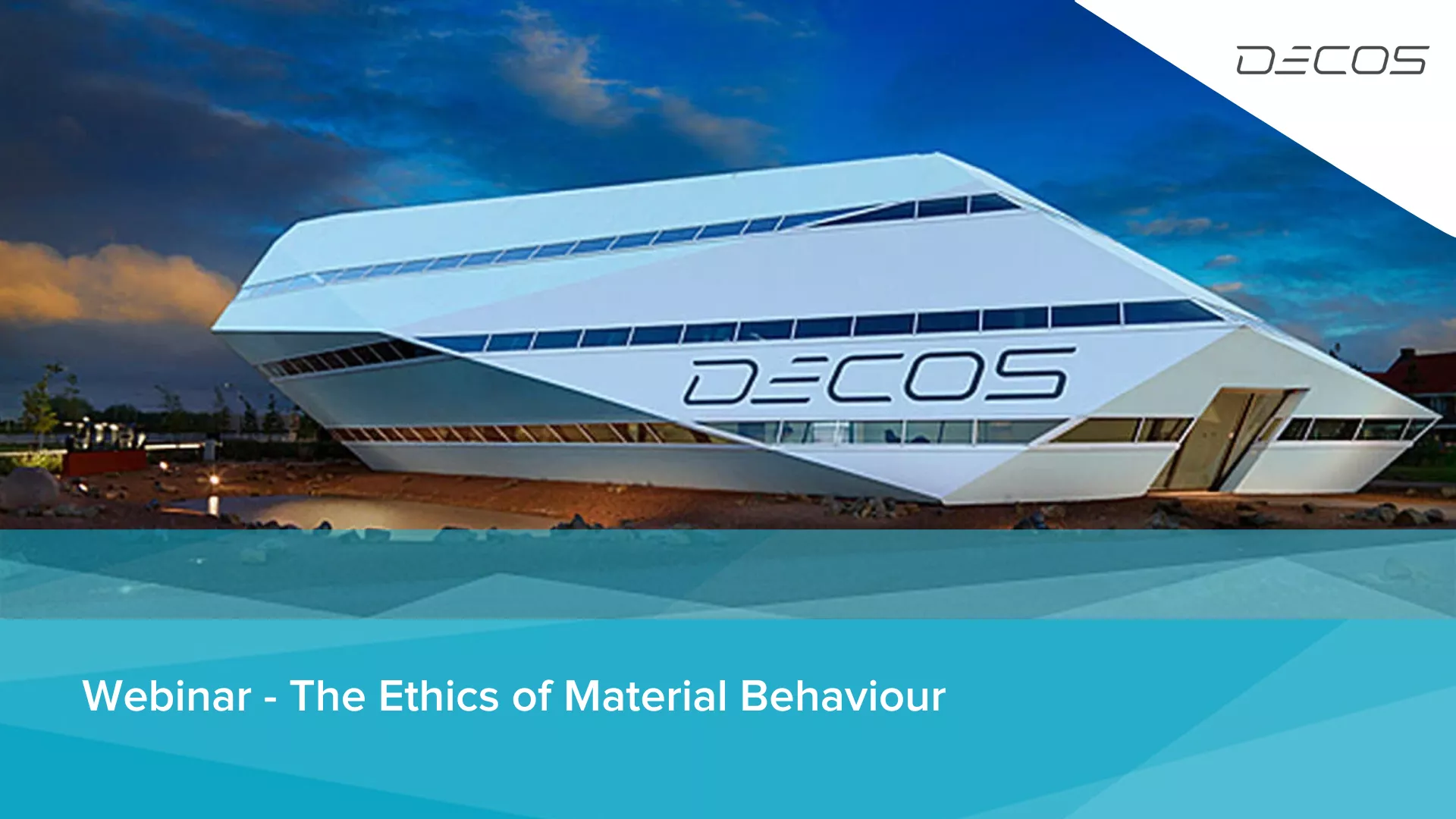The Ethics of Material Behaviour
In today's world, where material science innovation is constantly pushing boundaries, the ethical implications of our material choices often go overlooked. This technical webinar delves into the complex and fascinating realm of the ethics of material behaviour. The session provided valuable insights into how material choices impact the environment, society, and human well-being.

The webinar opened with a stark reminder of the environmental footprint associated with materials. From resource extraction and processing to production, use, and disposal, each stage in a material's life cycle carries environmental consequences. The discussion highlighted issues like resource depletion, pollution from mining and manufacturing, and the environmental burden of improper waste management. Moving beyond environmental concerns, the session explored strategies for sustainable material development. Responsible sourcing practices were emphasized, underscoring the importance of minimizing environmental damage and promoting ethical labor conditions throughout the supply chain. Life Cycle Assessment (LCA) was introduced as a valuable tool for evaluating the environmental impact of materials across their lifespan. Furthermore, the session addressed the ethical obligation to prioritize worker safety when dealing with materials. Discussions explored the importance of implementing proper safety protocols and ensuring worker well-being throughout the material life cycle.
Here are the key takeaways:
- Environmental Impact: Our choices of materials have a significant environmental impact. Understanding the environmental footprint throughout a material's life cycle, from resource depletion to waste disposal, is crucial for making sustainable decisions.
- Sustainable Development: Material development goes beyond functionality. Responsible sourcing practices, minimizing environmental damage, and promoting ethical labor conditions are essential for truly sustainable materials.
- Transparent supply chains: The ethical considerations extend beyond the initial source. Transparent supply chains that hold suppliers accountable for ethical practices are vital for responsible material selection.
- Worker Safety: Prioritizing worker safety throughout the material life cycle is a moral imperative. Implementing proper safety protocols and ensuring worker well-being are non-negotiable aspects of ethical material use.
- Innovation with Responsibility: The future of materials science lies in innovation that is driven by both functionality and ethical responsibility. Biomimicry and closed-loop systems offer promising paths toward a more sustainable and ethical future.
By understanding these key points, individuals and businesses can contribute to a future where material choices are guided by a deep commitment to environmental responsibility, social justice, and worker safety.
This webinar was presented by Decos, a cutting-edge technology services partner ready to meet your diversified needs in the healthcare domain.
If you have any questions about this webinar or wish to seek advice on medical device project, please contact Devesh at devesh.agarwal@decos.com
We would love to discuss it with you!
Discover more

FOTA in Practice: Enhancing Device Performance with OTA Updates

Understanding Compliance: U.S. FDA and EU MDR


